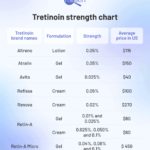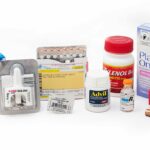Meds That Start With T
1. Tylenol
2. Trazodone
3. Topamax
4. Tamsulosin
5. Tramadol
6. Tretinoin
7. Triamterene
8. Terbinafine
9. Telmisartan
10. Torsemide
11. Tizanidine
12. Thiamine
13. Trihexyphenidyl
14. Tinidazole
15. Tenormin
16. Terazosin
17. Thiocolchicoside
18. Tocopherol
19. Tibolone
20. Tranexamic acid
21. Tacrolimus
22. Testosterone
23. Tadalafil
24. Thioridazine
25. Timolol
26. Temazepam
27. Triptorelin
28. Trimethoprim
29. Treprostinil
30. Theophylline
More About Meds That Start With T
Welcome to our comprehensive guide on medications that start with the letter “T.” In the pharmaceutical world, there are numerous drugs available to treat various medical conditions, and it can often be overwhelming to navigate through the sheer number of options. That’s why we have created this informative resource to shed light on some of the most commonly prescribed medications starting with the letter “T.”
Before we delve into the specific medications, it’s important to note that prescription drugs should always be taken under the guidance and supervision of a healthcare professional. Every medication has its own unique set of benefits, potential side effects, and interactions with other substances. Therefore, it is crucial to consult your doctor or pharmacist before starting any new medication.
Now, let’s explore some of the medications that begin with “T” and the conditions they are commonly prescribed for.
1. Tylenol (acetaminophen): Tylenol is a widely recognized over-the-counter pain reliever and fever reducer. It is frequently recommended for minor aches, pains, and headaches. However, it’s important to follow the dosage instructions carefully, as excessive consumption can lead to liver damage.
2. Tamiflu (oseltamivir): Tamiflu is an antiviral medication commonly used to treat and prevent influenza (flu). It works by preventing the virus from multiplying in the body, reducing the duration and severity of flu symptoms when taken within 48 hours of symptom onset.
3. Trazodone: Trazodone is often prescribed as an antidepressant or sleep aid. It helps regulate the levels of serotonin, a neurotransmitter in the brain associated with mood. This medication can also be prescribed to manage anxiety or insomnia.
4. Tums (calcium carbonate): Tums is an over-the-counter antacid used to relieve heartburn, acid indigestion, and upset stomach. Calcium carbonate, the active ingredient in Tums, works by neutralizing excess stomach acid, providing quick relief from discomfort.
5. Tadalafil: Tadalafil, also known by its brand name Cialis, is a medication used to treat erectile dysfunction (ED) and symptoms of benign prostatic hyperplasia (BPH). It belongs to a class of drugs called phosphodiesterase type 5 (PDE5) inhibitors, which increase blood flow to certain areas of the body, enabling men to achieve and maintain an erection for sexual activity.
6. Topamax (topiramate): Topamax is an anticonvulsant medication primarily used to treat epilepsy and prevent migraine headaches. It works by stabilizing electrical activity in the brain, reducing the frequency and severity of seizures and migraines.
7. Tegretol (carbamazepine): Tegretol is an anticonvulsant medication that also acts as a mood stabilizer. It is commonly prescribed to manage epileptic seizures, nerve pain associated with conditions like trigeminal neuralgia, and certain mood disorders such as bipolar disorder.
These are just a few examples of medications starting with the letter “T” and their respective uses. It’s important to remember that this guide is not exhaustive and only provides a brief overview of each medication. Always consult your healthcare provider for personalized advice and proper dosing instructions.
We hope this introductory guide helps familiarize you with some medications that start with “T.” Remember, understanding your medications and adhering to your healthcare provider’s advice is crucial for your overall well-being. Stay tuned for more informative articles covering various topics related to health, wellness, and medications.
Meds That Start With T FAQs:
FAQ about Medications Starting with “T”
1. Q: What is Tramadol and what is it used for?
A: Tramadol is a pain medication that is used to treat moderate to severe pain. It works by affecting the brain’s perception of pain.
2. Q: Is Trazodone a sedative or an antidepressant?
A: Trazodone is primarily used as an antidepressant, but it also possesses sedative properties and is sometimes prescribed to treat insomnia.
3. Q: Can I take Tylenol (acetaminophen) if I’m allergic to other pain relievers like ibuprofen?
A: Yes, you can take Tylenol even if you’re allergic to other nonsteroidal anti-inflammatory drugs (NSAIDs) like ibuprofen, as acetaminophen is not an NSAID.
4. Q: What is Tamiflu and what is it used for?
A: Tamiflu is an antiviral medication that is used to treat and prevent influenza (flu) virus infections. It works by inhibiting the growth of the virus.
5. Q: What are the possible side effects of Topiramate?
A: Some common side effects of Topiramate, an anticonvulsant, include dizziness, fatigue, memory problems, and tingling in the extremities.
6. Q: Can I drink alcohol while taking Tetracycline antibiotics?
A: It is generally advised to avoid alcohol when taking Tetracycline antibiotics as it may interfere with the drug’s effectiveness and increase the risk of side effects.
7. Q: Is there a generic version of Triamcinolone cream available?
A: Yes, Triamcinolone is available as a generic medication. It is a topical corticosteroid commonly used to treat various skin conditions.
8. Q: Can I abruptly stop taking Toprol-XL (metoprolol) if I feel better?
A: No, it is important to follow your healthcare provider’s instructions and not stop taking Toprol-XL abruptly as it may lead to adverse effects such as increased heart rate or high blood pressure. A gradual dose reduction is usually recommended.
9. Q: What is the recommended dosage for Tamsulosin (Flomax)?
A: The recommended dose of Tamsulosin, an alpha-blocker used for treating urinary symptoms of an enlarged prostate, is usually 0.4 mg once daily, taken approximately 30 minutes after the same meal each day.
10. Q: Is there an over-the-counter version of Tretinoin (Retin-A)?
A: No, Tretinoin is a prescription medication and is not available over-the-counter. It is commonly used topically to treat acne and reduce the appearance of wrinkles.











